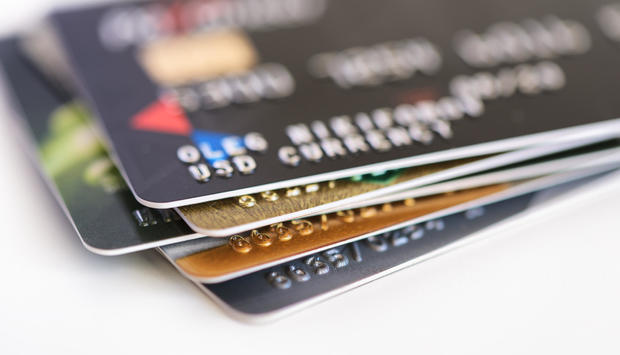6 simple ways to reduce (or even eliminate) your credit card debt
Credit cards have become an integral part of most people's daily lives — and for good reason. Not only does the plastic in your wallet offer a convenient way to pay and rack up rewards, but it also lets you make purchases even when cash is tight. But while the ease of use is alluring, it can quickly lead to accumulating high-rate credit card debt, even for those who believe they're using their cards responsibly.
The current high-rate environment has made it even easier to fall into the credit card debt trap, too. All it takes is a few large purchases, an unexpected emergency or losing track of your spending to find yourself with a credit card balance that seems to grow exponentially.
If you find yourself in a similar situation, it's important not to panic. Whether you're dealing with a few thousand dollars or tens of thousands in credit card debt, there are a few simple strategies you can employ to regain control of your finances.
Want to tackle your card debt today? Find out what your best debt relief options are now.
6 ways to reduce (or even eliminate) your credit card debt
If you want to reduce or eliminate the amount of credit card debt you're carrying, these strategies could come in handy:
Pay more than just the minimum
One of the simplest but most powerful ways to tackle credit card debt is to pay more than the minimum required payment each month. Credit card companies will typically set very low minimum payments, sometimes as little as 1% of the balance plus interest. While this may seem helpful in the short term, it can lead to years of debt and thousands of dollars in interest charges.
By increasing your payment, you can significantly reduce the time it takes to pay off your debt and the total interest you'll pay. For example, if you have a $5,000 balance on a card with an 18% APR and only make the minimum payment of $125 (interest + 1% of the principal), it would take you 273 months to pay off the debt, and you'd pay $6,923.09 in interest. However, if you increase your payment to $200 per month, you'd be debt-free in just 32 months and pay only $1,313.96 in interest.
Learn how the right debt relief company could help you get rid of your credit card debt.
Negotiate with your creditors
Many people don't realize that credit card terms are often negotiable. If you're struggling with high interest rates or fees, it's worth reaching out to your credit card company to see if they're willing to work with you.
Here are a few things you can negotiate:
- Lower interest rates
- Waived annual fees
- Reduced minimum payments
- Removal of late fees or over-limit fees
You might be surprised at how accommodating they can be, especially if you've been a long-time customer with a good payment history.
Enlist professional help
If you're struggling to make progress on your own, consider enlisting professional help through a debt management program. These programs are typically offered by non-profit credit counseling agencies and can be an excellent way to get your debt under control. When you enroll in a debt management plan, the credit counseling agency works with your creditors to try and lower your interest rates and possibly reduce or eliminate fees, which could help you save significantly on what you owe.
Try to settle your debts
Credit card debt forgiveness, or debt settlement, is another option for those with significant credit card debt, and it can be particularly helpful if you're already behind on payments. With debt settlement, you (or a debt relief company acting on your behalf) negotiate with your creditors to pay less than the full amount owed. For example, if you owe $10,000 on a credit card, you might offer to pay $5,000 as a lump sum to settle the debt. If the creditor agrees, the remaining $5,000 will be forgiven.
Transfer your balance
If you have good to excellent credit, you might be able to take advantage of a balance transfer offer. Many credit card companies offer introductory 0% APR periods on balance transfers, typically lasting between 12-21 months. By transferring your high-interest credit card balances to a card with a 0% intro APR, you could save a significant amount on interest and potentially pay off your debt faster.
Consolidate your debts
When consolidating your debt, you take out a new loan to pay off multiple credit card debts. This can simplify your finances by giving you a single monthly payment to manage instead of several, and if you can secure a loan with a lower interest rate than your credit cards, you'll save money on interest charges.
There are several ways to do that, including debt consolidation loans from a bank or credit union, personal loans, home equity loans or debt consolidation programs through debt relief companies. So, there are options to consider, each with potential benefits and downsides.
The bottom line
While credit card debt can feel overwhelming, these strategies provide a roadmap to financial freedom. Whether you choose to negotiate with creditors, transfer balances or seek professional help, the key is to take action so you can overcome your credit card debt and build a more secure financial future.




